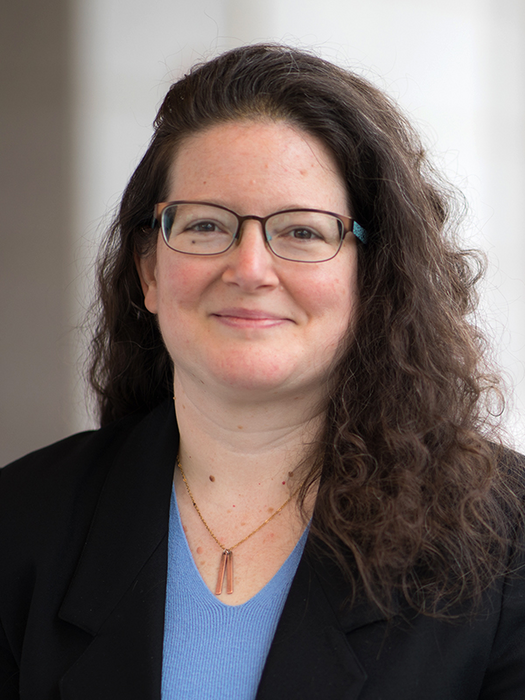November 16, 2022—(BRONX, NY)—The National Institutes of Health has awarded Albert Einstein College of Medicine a five-year, $6.6 million grant to lead a New York-based consortium of medical schools to train young scientists in kidney, urology, and hematology research.

Credit: Albert Einstein College of Medicine
November 16, 2022—(BRONX, NY)—The National Institutes of Health has awarded Albert Einstein College of Medicine a five-year, $6.6 million grant to lead a New York-based consortium of medical schools to train young scientists in kidney, urology, and hematology research.
The grant establishes the New York Consortium for Interdisciplinary Training in Kidney, Urological, and Hematological Research, or NYC Train KUHR (pronounced “cure”), bringing together experts in research and education from Einstein, Columbia University Irving Medical Center, the Icahn School of Medicine at Mount Sinai, and Renaissance School of Medicine at Stony Brook University.
“With NYC Train KUHR, more than 100 scientists skilled in kidney, urologic, and hematologic (KUH) disease research will work together to mentor pre- and post-doctoral fellows in interdisciplinary research involving these specialties,” said Michal Melamed, M.D., M.S., the grant’s lead principal investigator and professor of medicine, of pediatrics, and of epidemiology & population health at Einstein and a nephrologist at Montefiore Health System. “These specialties are deeply intertwined and it’s critical to train a new generation of investigators who can comfortably navigate these fields and lead research to improve the care and quality of life for people with KUH diseases.
“Many of the diseases the trainees will focus on—such as sickle cell disease and kidney disease—disproportionately affect Black and Hispanic people, and other marginalized groups,” continued Dr. Melamed. “We are particularly hopeful that advancing this interdisciplinary training will benefit our Bronx community.”
NYC Train KUHR is the only NIH-funded consortium focused on KUH disease research and training in the Northeast and one of only seven nationally. Trainees selected to participate in the program will have at least two mentors, who will help guide and inform their research.
“Many of the diseases of these three body systems result in complications that impact how the others function, so it’s imperative to reach across disciplines to effectively treat disease,” said co-principal investigator Jonathan Barasch, M.D., professor of medicine, of pathology, and of cell biology at Columbia University Irving Medical Center. “While this program is focused on training early career physicians and scientists, we expect that the participating faculty members will also benefit from increased collaborations across institutions.”
The new grant builds on decades of established training programs at some of the participating institutions. “Individually, our institutions have impressive track records in basic science, translational, and clinical research achievements within these conditions. Together our strengths are magnified, and we can share our collective expertise with new trainees who will continue to make advances in the field,” said Kirk Campbell, M.D., professor of medicine and co-principal investigator at Icahn School of Medicine at Mount Sinai.
NYC Train KUHR will recruit up to 10 trainees each year who will have opportunities to work under mentors from various institutions, access data and scientific models from past and current studies, and attend regular networking and professional development presentations.
The grant also will enable the creation of an undergraduate summer program for students from groups historically underrepresented in medicine who are interested in kidney, urology, or hematology research. “A key priority is enriching the diversity of physicians and researchers in our fields,” said co-principal investigator Sandeep Mallipattu, M.D., chief of the division of nephrology and hypertension at Renaissance School of Medicine at Stony Brook University.
Other co-principal investigators and project leaders on the grant include Frederick Kaskel, M.D., Ph.D., and Kelvin Davies, Ph.D., at Einstein; Wadie Bahou, M.D., at Renaissance School of Medicine at Stony Brook University; Nancy Green, M.D., at Columbia University Irving Medical Center; and Margaret Baron, M.D., Ph.D., at Icahn School of Medicine at Mount Sinai.
The grant, titled “New York Consortium for Interdisciplinary Training in Kidney, Urological and Hematological Research (NYC Train KUHR),” was provided by the National Institute of Diabetes and Digestive and Kidney Diseases (NIDDK), part of the NIH. (1U2CDK129502 and 1TL1DK136048)
***
About Albert Einstein College of Medicine
Albert Einstein College of Medicine is one of the nation’s premier centers for research, medical education and clinical investigation. During the 2022-23 academic year, Einstein is home to 740 M.D. students, 194 Ph.D. students, 118 students in the combined M.D./Ph.D. program, and approximately 225 postdoctoral research fellows. The College of Medicine has more than 1,900 full-time faculty members located on the main campus and at its clinical affiliates. In 2022, Einstein received more than $202 million in awards from the National Institutes of Health. This includes the funding of major research centers at Einstein in cancer, aging, intellectual development disorders, diabetes, clinical and translational research, liver disease, and AIDS. Other areas where the College of Medicine is concentrating its efforts include developmental brain research, neuroscience, cardiac disease, and initiatives to reduce and eliminate ethnic and racial health disparities. Its partnership with Montefiore, the University Hospital and academic medical center for Einstein, advances clinical and translational research to accelerate the pace at which new discoveries become the treatments and therapies that benefit patients. For more information, please visit einsteinmed.edu, follow us on Twitter, Facebook, Instagram, LinkedIn, and view us on YouTube.




